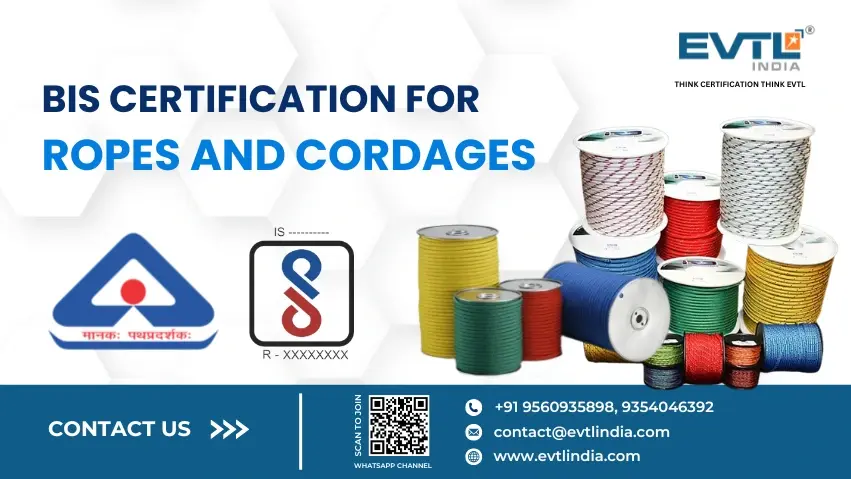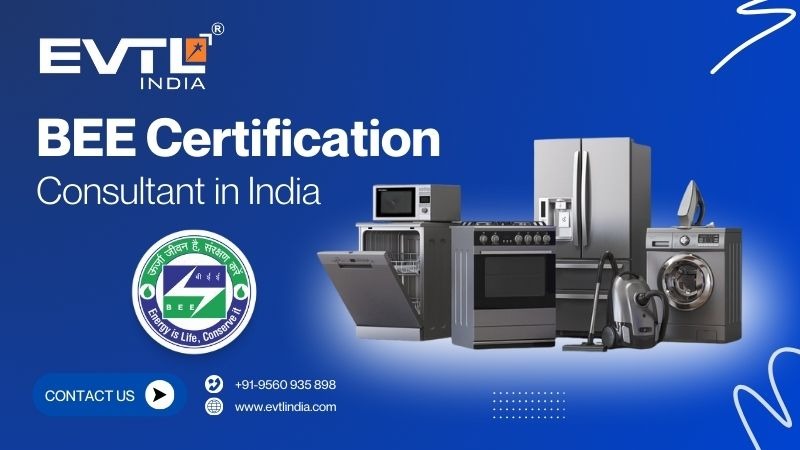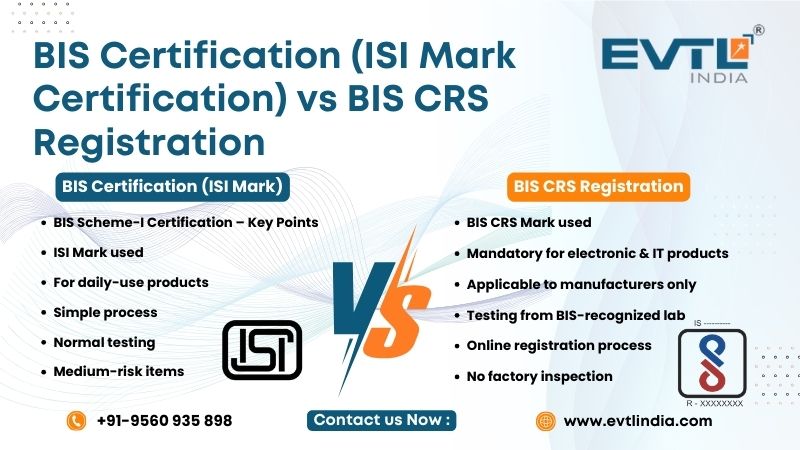The Bureau of Indian Standards in its recent Quality Control Order (QCO) announced that the BIS licensing has become mandatory for ropes and cordages. This has been set as the first most important step in ensuring the safety and the reliability of the product. For the manufacturers dealing with ropes and cordages and the process of the same, it is extremely crucial to be aware of the particulars, advantages, and disadvantages of it.
The ISI marking system connotes a battery of tests, inspections, and various other activities. BIS certification for Ropes and Cordages significantly increases the consumers' trust in the products and therefore also contributes to the development of the brand value of the manufacturer. Let's dive deeper into BIS certification for ropes and cordages.
What do you mean by the term BIS certification?
The regulatory body, BIS Certification, offers the Bureau of Indian Standards' (BIS) quality approval. The Bureau of Indian Standards Act of 1986 established the BIS as a statutory body. On April 1, 1987, the government began operations. When a product has an ISI mark, it indicates that it is reliable, safe, and meets all the safety standards laid down by BIS.
This also shows that the product has passed through a lot of rigorous and careful tests in the presence of BIS officials and is now compliant enough for extensive use. Additionally, it is part of the process of maintaining standards in the industry and thus, instilling trust among consumers and other similar companies.
What is the latest mandatory Quality Control Order for Ropes and Cordages?
The Ropes and Cordages (Quality Control) Order, 2024 was published on October 3, 2024, and it obliges producers to acquire BIS certification (ISI Mark) for nine significant product classes, prior to selling them in India.
Through this regulation, the company is committed to the improvement in product availability, safety, and consumer confidence in the domestic manufacturing sector. The penalties for not following the law will be applied as per the Bureau of Indian Standards Act, 2016. The elimination of the substandard goods available in the market is the target of the government through the enforcement of such standards.
This will be a gain for both the consumers and the trusted manufacturers. The certification stage assesses goods on their tensile strength, bendability, durability on the environment, and the general lifespan, hence, backing with strict safety and performance standards are fulfilled. This requirement applies specifically to BIS certification for Ropes and Cordages.
The mandatory ropes and cordage products under BIS Certification
|
Product Covered |
Indian Standard |
Ropes and Cordages QCO |
|
IS 1084:2005 |
Ropes and Cordages (Quality Control) Order, 2024 | |
|
Fibre Ropes - Polyester - 3-, 4-, 8- and 12- Strand Ropes |
IS 11066:2022 | |
|
Textiles — Composite Synthetic Fibre Ropes |
IS 14928:2001 | |
|
IS 14929: 2022 | ||
|
Steel wire ropes – Fibre main cores |
IS 1804:2004 | |
|
Fibre Ropes — Polyamide — 3-, 4-, 8- and 12- Strand Ropes |
IS 4572:2022 | |
|
IS 5175:2022 | ||
|
Fibre Ropes — Polyethylene —3- And 4-Strand Ropes |
IS 8674 : 2013 | |
|
Fibre Ropes Of Polyester / Polyolefin dual Fibres |
IS 17609 : 2021 |
Process
for BIS Certification
The certification process for Ropes and Cordages under the BIS, which is the Bureau of Indian Standards, is structured to help the product comply with the necessary standards. This process leads to the ISI Certification for Ropes and Cordages. The certification process can be described as follows:
1. Application Submission:
2. Documentation Review: BIS checks the submitted documents to ensure if they are complete and correct.
3. Factory Inspection:
4. Sample Testing: Samples are drawn and sent for testing at the BIS-approved laboratories. This is done for the fulfillment of the Indian standards.
5. Certification Grant: After the satisfaction of the inspection and testing, the BIS association provides certification that the manufacturer can use on their products.
Essential Documents
Required for BIS Certification
Manufacturers must submit the following documents to apply for BIS certification:
● Application form
● Manufacturing process details
● Quality control plan
● Test reports from BIS-approved
laboratories
● Factory layout and equipment
details
● Proof of business registration
● Product specifications and
technical details
● Declaration of conformity to Indian standards
Moreover, in some cases, they may need to provide a document verifying the adherence to the norms set for environment sustainability and safety, with reference to the particular product to be certified.
Understanding The Benefits of BIS-Certification For Ropes & Cordages:
Here are the advantages of obtaining BIS certification for ropes and cordages as mentioned:
- Consumer Safety : The BIS-certified ropes and cordages indicate that they have undergone rigorous tests for tensile strength, durability, and security. This means that the possibility of product failure is considerably reduced, and thus, the products are reliable even in highly sensitive usages. The actual value to the customers is their peace of mind.
- Market Credibility : A product that is BIS certified provides an assurance of quality; Apart from that, it also fulfills a set of specific safety standards. Therefore, it establishes a credible image and builds the trust of buyers, which leads to an increase in order and development of a market preference. It uplifts the entire product image.
- Regulatory Compliance : BIS certification is the requirement for some of the products that are being sold in India. Following the Indian laws helps avoid different penalties and also helps for the smooth and easy-going industrial operations. It aids in the compliance with the government rules.
- Improved Product Worth : The products that are certified by BIS are viewed as more trustworthy and of a greater standard. This not only increases the value of the product but also makes it more competitive in the local and overseas markets. It helps businesses stand out in the busy market.
- Improved manufacturing practices : The BIS certification means that the production of the goods is done using the best practices and techniques of the producers. It is a great motivating factor for them to take the quality actions at different steps and techniques required in the production process. Ultimately, this promotes a quality culture of being consistent and being trusted which will never permit any types of wrong practices; consequently, the products are much better with fewer defects.
BIS certification cost for Ropes and Cordages:
| S No. | Particular | Amount (INR) | Remarks |
| 1 | Application Fee | 1000 | To be paid directly to BIS |
| 2 | Audit Fee | 7000 | To be paid directly to BIS |
| 3 | License Fee | 1000 | To be paid directly to BIS |
| 4 | Sample Testing Fee | As Applicable | To be paid directly to BIS (Testing charges vary from product to product and lab to lab) |
| 5 | Minimum Advance Marking Fee | As per actual | To be paid directly to BIS (Marking fee vary as per Indian Standard) |
| 6 | Renewal Fee | 1000 | To be paid directly to BIS |
| 7 | Inclusion Fee | 5000 | To be paid directly to BIS |
| 8 | ERCS Service Fee | - |
Challenges and Opportunities in BIS Certification for Ropes & Cordages:
Challenges :
- Products that are subpar and counterfeit are widespread, endangering consumers' safety and undermining their confidence.
- A significant problem, particularly in rural markets, is a lack of knowledge about quality standards.
- Due to lax regulation and low awareness, uncertified products frequently find their way onto the market.
Opportunities:
- The Quality Control Order (QCO) 2024 will assist in getting rid of dangerous and subpar goods.
- Genuine manufacturers will have a fair and competitive environment thanks to QCO enforcement.
- Raising public knowledge of BIS certification can increase demand for high-quality, certified ropes.
- By encouraging safer, more dependable products, these advancements can help both
producers and consumers.
Future Scope of Ropes and Cordages Industry
The ropes and cordages industry in India seems to have a favorable future with the introduction of the Quality Control Order, 2024. The stress on the quality and standardization will be the main forces behind the innovation and the driving factor for the consumer trust. In addition, scientific progress will always be at the forefront of rope technology and the high demand for new products.
India will hold its position as a leading supplier and exporter of ropes as strict compliance with international quality standards will promote the global market for Indian goods. On the other hand, the combination of regularity implementing, technological transformation, and a dedication to sustainability will provide assurance that this industry would be both competitive and unyielding.
Why choose EVTL India as a top BIS Consultant for Ropes and Cordages?
A major organization in India's private sector, EVTL India primarily provides inspection, testing, audits, product certification, and consulting services to different industries both domestically and internationally, confirming their adherence to the relevant laws and industry standards. They serve as a top BIS Consultant for Ropes and Cordages.
EVTL India offers a full range of solutions for product certification, testing, training, auditing, and compliance services to help manufacturers and importers achieve much higher operational effectiveness and quality levels.EVTL India will handle all aspects of the ISI Mark Certification process, including pre-registration requests, sample preparation, documentation, testing, and application procedures. They are an expert ISI Consultant for Ropes and cordages.
Conclusion
Ropes and cordages are not merely tools; they are the very lifelines that attach, provide support to and are directly involved in different human activities. Their range of applications is considerable and multifaceted, from construction cranes to climbing for fun. The arrival of the Ropes and Cordages (Quality Control) Order, 2024, serves as a groundbreaking move to promote safety, reliability, and quality in this pivotal sector.
Following this route of standardization and technological sustenance, India is poised to emerge as the frontrunner in the manufacture of superior quality ropes that are compatible with the requirements of a technologically advanced lifestyle. No matter if you are tying down a freight, mountain climbing, or putting up a skyscraper, the most important thing is to find the right rope; and with the BIS-certified products, you can be confident you are making the right decision.
Gaining BIS certification is a tricky job, especially for small and medium-sized enterprises; EVTL India is a curriculum company that is dedicated to providing approbation services (ISI Mark). The company also handles the management of certificate and regulatory fees, which are used to support the electronic system of BIS portal submission; thus enabling speedy and successful certification.
By going with EVTL India, companies can not only make their products more popular in the Indian market but also achieve superior sales in other markets, therefore, they will be able to keep their competitors behind. Besides this, EVTL also provides post-certification support, which aids manufacturers in keeping up with the BIS standards and in renewing their licenses.
Frequently Asked Questions (FAQs):
1. What does this ISI mark stand for?
The Indian Standard Conformity Mark single-use product is certified by the BIS mark. Also, for Ropes and Cordages, this mark is helpful in distinguishing non-durable ropes and cordages from the norms that ISI Mark for Ropes and Cordages requires.
2. If a manufacturer sells fasteners that do not have the certification, what are the consequences?
The Bureau of Indian Standards Act, 2016 should seize the non-certified goods since it is a punishable order infringement.
3. Can foreign manufacturers get certification by BIS?
Yes, foreign manufacturers can apply for BIS certification for market their products in India.
4. What is the BIS certification for Ropes and Cordages?
Ropes and cordages confirmed to be in conformity with the required Indian Standards (IS) on performance, quality, and safety are certified by the brand of BIS. After the QCOs, only products with ISI mark are sold in India.




















